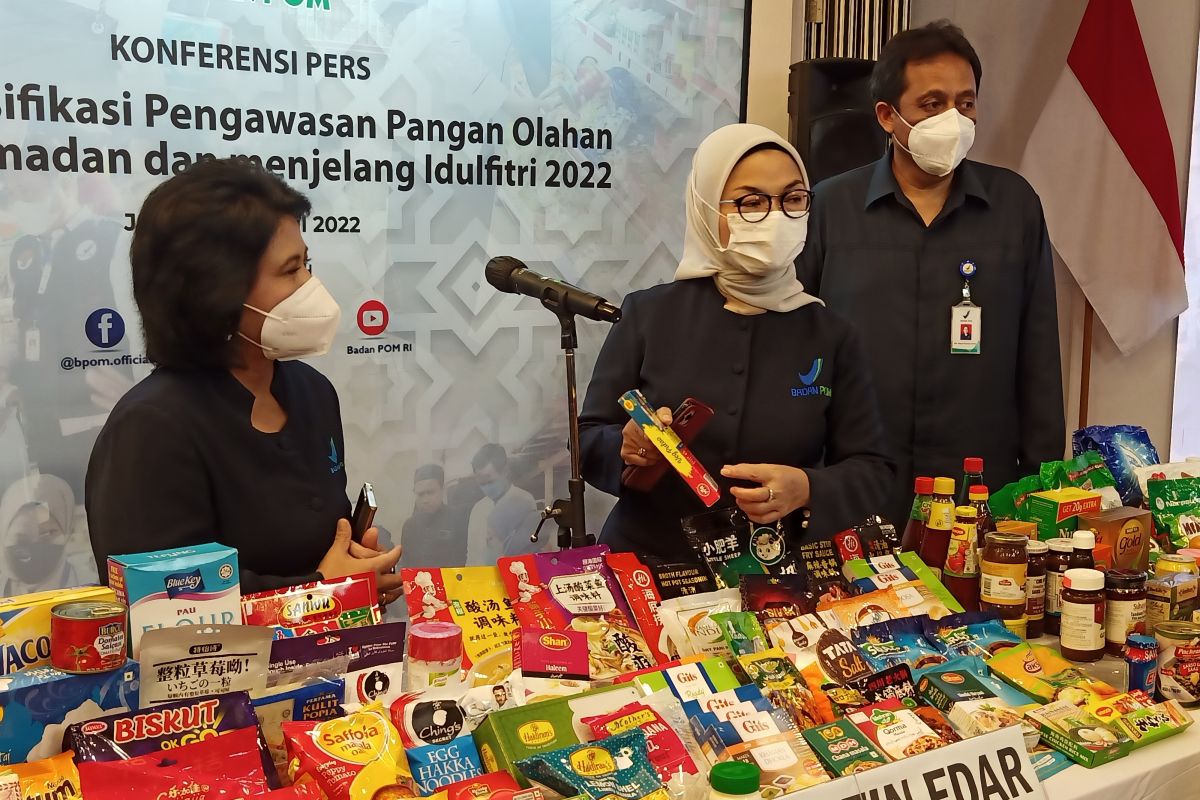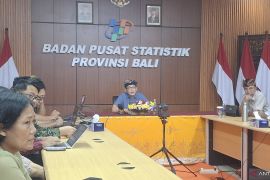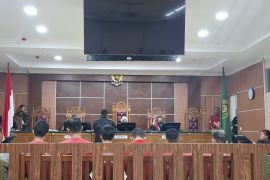"There are imported products without permits from the National Food and Drug Supervisory Agency, which usually we find them at borders. There are a lot of them and they are marketed (across the country),” BPOM head Penny K. Lukito said at a press conference at the Bhineka Tunggal Ika Building Hall of the Food and Drug Supervisory Agency, here on Monday.
There are regulations for imported packaged food products in border areas that are listed in cooperation relations between states in Government Regulation (PP) Number 34 of 2019 pertaining to Border Trade, she added.
However, the regulation also sets the maximum number of imported products and limits the use of goods to personal use only.
Lukito said that a monitoring exercise on foods that did not meet the requirements, which was conducted prior to Eid this year, revealed that thousands of packaged food products belonging to the Milo Nestle, Quaker, Kraft, Apollo biscuits, and other brands were smuggled to various places in Indonesia.
Although distribution permits were obtained from the country of origin for some of the products, they were still confiscated by BPOM since they did not meet the requirements for distribution in the country. Usually, such products come from Malaysia and Singapore.
"There are products that were also produced in Indonesia. (Products) such as those from Malaysia and Singapore are allowed in certain quantities, as long as they are consumed by yourself. But sometimes, they come in large quantities and we find those smuggled items on small islands. Then they (are distributed to) other islands in Indonesia," she elaborated.
Related news: BPOM streamlines permit issuance for processed food distribution
That practice is considered smuggling, for it could negatively affect the income of domestic producers of similar products.
"There are imported products that have also received distribution permits, some have been produced in Indonesia, such as Milo and others. (This smuggling practice is) detrimental to them," she said.
To counter this, the agency is working with law enforcement agencies to conduct raids and arrest smugglers for harming domestic business actors who produce the same items.
Lukito said that, during the recent monitoring exercise, expired foods were found to account for up to 57.16 percent of the smuggled foods that did not meet the criteria. The products were found in Manokwari, Tanimbar Islands, Ambon, Manado, and Rejang Lebong.
Meanwhile, 37.80 percent of foods without distribution permits were found in Makassar, Tarakan, Bandung, Palembang, and Rejang Lebong.
The agency also made a breakthrough by granting distribution permits for imported products in border areas as long as they were only circulated there. "It is not allowed to (be distributed all over the country), because we already have domestic production with that brand," Lukito said.
Related news: Fewer TMK food products detected ahead of Eid: BPOM
Related news: BPOM halts Kinder products' circulation over bacterial threat
Translator: Andi Firdaus, Mecca Yumna
Editor: Suharto
Copyright © ANTARA 2022












